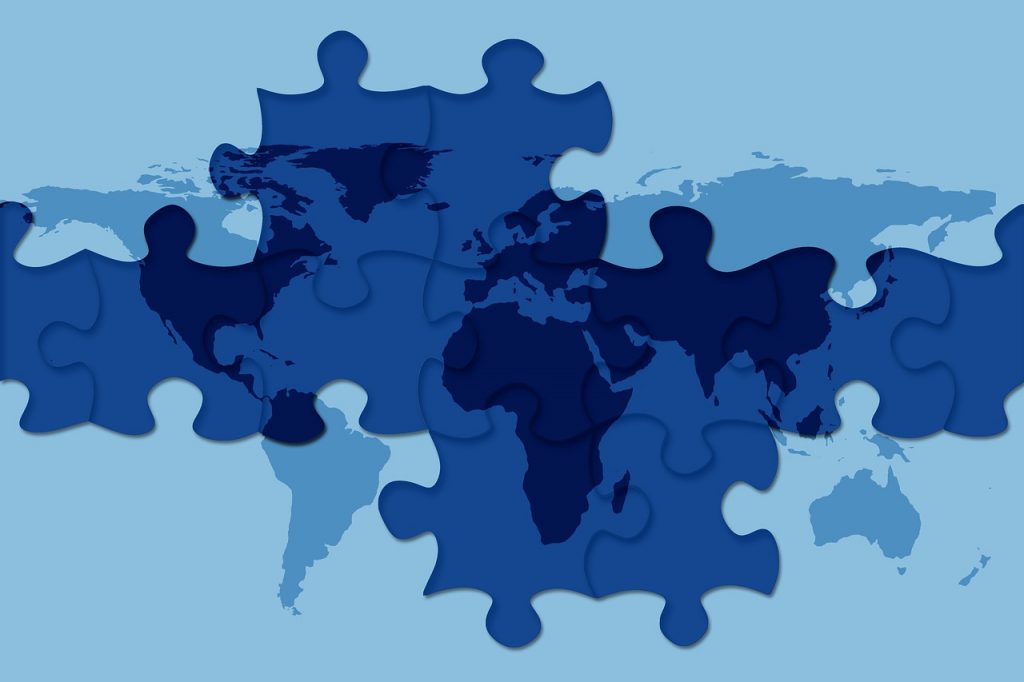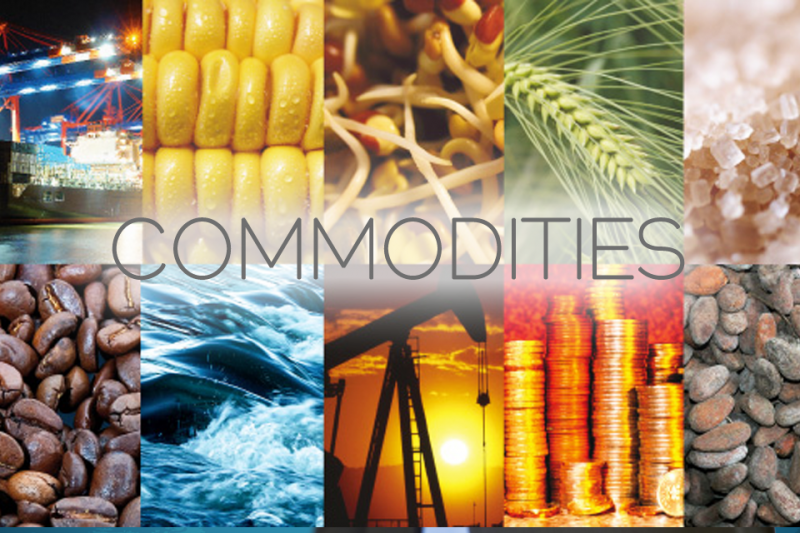
We Connect the World
We help to open new markets and we develop business opportunities internationally.
What we do:
- Physical commodity trading, marketing and origination in the Agricultural and Energy sectors.
- International business development and business creation through JVPs, etc.
- Sourcing and supplying what the people need across the world.
- Acquiring commercial real estate properties and facilitating real estate deals.
- Providing private financing solutions for clean energy projects.
- Delivering superior consulting and intermediary services by focusing on client needs.
- Facilitating and brokering trade deals and transactions in different business sectors and markets across the world.
- Helping to grow the global carbon credit market (carbon credits, carbon offsetting).
- Developing solutions and partnerships in the blockchain and climate technology sectors.

Physical Commodity Trading and Marketing
At GCE Global, we provide marketing, sourcing and business introductory services in different markets and industries across the world. We facilitate trade transactions of energy and agricultural commodities.
GCE has a strong global network and a deep understanding of markets. Collaborations and partnerships are at the core of our business model.
As part of its business activities, GCE acts as a Broker, Intermediary and Introducing Agent for many projects and transactions that its team and partners are involved in. GCE also excels in international business development and energy marketing.
We connect producers/suppliers and consumers/buyers in different countries and markets. We also help companies find private financing solutions for their project with an emphasis on large agricultural projects, real estate, clean energy projects and climate technologies.

Global Network

The Power of Connection
Our strength is our strong global network and our understanding of global markets. It helps us open new markets and to develop good business opportunities for our Company and also for our partners, collaborators and clients.
We help make the trade happen between market participants and we help make global supply chains more efficient and sustainable.
Click here to learn more about us.


Collaboration and Partnership

Collaborations and Partnerships are key to the success of our business.
Collaboration involves partnering with diverse people and companies across the world to tackle intricate problems, accomplish ambitious goals, access vital commodities and overcome barriers and challenges.
By combining resources, intelligence and networks, collaborative alliances empower businesses to promote innovation, reinforce development, and enhance their competitive advantage in different industries.
Our global network of contacts and our partners are essential to achieving our business strategic objectives.

Negotiating Across Borders

Delivering optimal results for all the parties involved.
At GCE Global, we are able to understand and effectively communicate the needs and interests of our clients and partners.
We are also able to anticipate potential obstacles and navigate through challenges in order to secure the best possible outcomes in different business activities and sectors.
Understanding cultural differences is crucial for international negotiation and business because cultures influence communication, decision-making, and behavior. At GCE Global, we are aware of and respect cultural differences it help enhance effective communication, build trust, and facilitate successful negotiations and partnerships.
We have good knowledge of different industries and the varying factors that may impact negotiations, and are able to leverage this knowledge to effectively champion the interests of our clients, partners and collaborators.
Additionally, what we do is to maintain open communication with all parties involved and build and maintain strong relationships in order to foster effective partnerships and effective business results.
Overall, GCE has excellent international negotiation skills that can be highly valuable for its ability to deliver optimal results while mitigating any risks or challenges that may arise.

What is the role of a Broker, Facilitator and Introducing Agent

An intermediary acts as a link between people (or companies) in order to try and bring about an agreement, a solution, etc., and to bring the best outcome possible for all the parties involved.
Broker
A broker is a professional who acts as an intermediary between buyers and sellers in physical commodity trading transactions or in other types of international business transactions.
Their primary role is to bring both parties together and facilitate the transaction. Brokers may offer insights into market trends, provide information on pricing and availability, perform global sourcing of physical commodities and help negotiate terms and conditions between buyers & seller.
Facilitator
A facilitator in global trade transactions is a third-party company that assists in various stages of the trade process.
Their main role is to facilitate and streamline the trade processes for all parties involved in international trade. They act as intermediaries between buyers and sellers and help manage the complex logistics and financial aspects of international trade.
Some of the key roles of a facilitator such as GCE Global in global trade transactions include:
1. Connecting buyers and sellers – Facilitators help bring buyers and sellers together and bridge the gap between them, enabling them to build relationships and close deals.
2. Managing documentation – Facilitators help manage the complex documentation required for international trade, including customs clearance, bills of lading, and other legal requirements.
3. Providing financial services – Facilitators can assist with arranging financing options for trade transactions, including letters of credit, bank guarantees, and trade finance options.
4. Offering logistics support – Facilitators offer logistics support to ensure that goods are shipped and delivered efficiently, and can provide warehousing, distribution, and transportation services.
5. Providing market intelligence – Facilitators help clients keep up-to-date with market trends, pricing, and regulatory changes that may impact their business.
By taking care of the logistical, financial, and regulatory complexities of international trade, a facilitator allows companies to focus on their core business activities, while ensuring successful trade transactions.
Introduction Agent
An introducing or introduction agent, is a person or entity that introduces a buyer or seller of physical commodities to a principal. The introducing agent usually earns a commission for bringing business to the broker. Their primary role is to identify potential buyers or sellers and connect them with the appropriate broker.
Both are completely independent players in the market and usually have a large network of contacts that help them to arrange and develop successful transactions based on the specific needs of their client, buyer and/or seller.
Overall, brokers, intermediaries and introducing agents play a crucial role in supporting physical commodity trading transactions. They help facilitate transactions, provide insights, and connect buyers and sellers to ensure that deals are completed efficiently and successfully.

Commodity Trading

What is the difference between an interdealer broker and an intermediary/facilitator ?
The difference between an interdealer broker and an intermediary/facilitator regarding the trading of commodities is primarily in the type of services they provide and the parties they serve.
An interdealer broker is a company that acts as a mediator between wholesale market participants, such as banks or traders, in various regulated financial markets to help them execute trades. At GCE, that is not what we do.
Interdealer brokers typically operate in the over-the-counter (OTC) market, where commodity trades are negotiated directly between two parties without the involvement of an exchange. Their main role is to provide prices to traders, facilitate trades, and settle transactions. Interdealer brokers are typically not involved in physical commodity trading but rather on paper and speculative trading.
An intermediary or facilitator (as what we do), on the other hand, is a company that provides services related to physical commodity trading, including market information, financing, storage, transportation, negotiation, etc.
Intermediaries/facilitators usually act as a bridge between buyers and sellers of physical commodities, helping them to negotiate prices, arrange logistics, and provide financing. One of the key roles of facilitators is to help manage the complexities of international trade, including legal, technical, and financial aspects.
Overall, while both interdealer brokers and intermediaries/facilitators are involved in the trading of commodities, they offer different sets of services aimed at catering to different market participants, types of trades, and stages of the trade process.

Who are the largest physical commodity brokerage firms and trading companies ?

You will find below a list of some major physical commodity brokerage firms and trading companies that also help to facilitate the trade of physical commodities around the world.
All these firms below also have a global network of contacts and partners and operate worldwide across multiple industries to provide innovative solutions to their clients.
Their skills and their global network help to move commodities from where they are available to where they are needed the most while ensuring smooth operations and trades.
Physical commodity trading firms help supply resources and vital commodities where and when they are needed on a global scale.
- Cargill – Cargill is an American multinational corporation and one of the largest privately held companies in the world. It operates in multiple industries including agriculture, food, and energy.
- Glencore – Glencore is a Swiss-based multinational commodity trading and mining company. It produces and trades in a wide range of commodities such as copper, coal, and oil.
- Trafigura – Trafigura is a multinational commodity trading company that specializes in global oil, metals, and minerals trading. It operates in over 48 countries worldwide.
- ADM – Archer Daniels Midland (ADM) is an American global food processing and commodities trading corporation. It deals in a variety of commodities including grains, oilseeds, and livestock.
- Mercuria – Mercuria is a Swiss global commodity trading company that focuses on energy, such as oil, gas, and power, as well as refined metals and agribusiness.
- Sumitomo – Sumitomo Corporation is a Japanese multinational trading and investment company that has a wide range of business activities including metals, energy, machinery, chemicals, textiles, and food. The company acts as a broker in physical commodity trading transactions and provides a wide range of services related to commodity trading such as financing, risk management, logistics, and market analysis.
